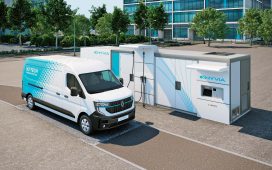Lucid’s CEO Peter Rawlinson has trashed the idea of Lucid producing a budget electric car, but he said the brand could one day lease its technology to other carmakers planning on doing so.
Speaking on the Wall Street Journal’s Bold Names podcast, Rawlinson stated Lucid’s foundational development in the EV space would be crucial to the future development of highly-efficient EVs under the sub US$20,000 ($30,164) price tag.
“If we could get to six miles per kilowatt-hour, it would be possible to have an EV in the future, say of 180 miles (290km) range, which would only require a 30 kilowatt-hour battery pack. And that’s more than enough [range] for most consumers,” he said.
“And if you knew there was fast charging on every street corner, why would you need to carry more than 180 miles as an antidote for range anxiety on the vehicle?”
“Its efficiency and the technology that Lucid’s developing today for its high-end products, which will enable that tomorrow.”
But when asked by host Christopher Mims about whether Lucid would produce such a car, Rawlinson responded bluntly.
“No, because the market sucks,” he said.
“We’re a publicly traded company and we are commercially viable in the future. That’s the vision. That market is notorious because you get into mass manufacture, terrible, low margins.”
Rawlinson used Porsche as an example of one of the world’s most profitable “traditional” car companies who has maintained its positioning as a premium automaker.
“It doesn’t operate in that sphere. I think this is where our licensing opportunity comes to play, as a tech company, licensing our technology so that other OEMs can benefit from that. And they could put such a vehicle in place.”
But questions persist around which carmakers would actually licence Lucid’s budget EV technology, with many brands in the process of developing their own, such as Ford with its Skunkworks team reportedly working quietly to deliver a US$25,000 ($38,270) EV.
Then there’s Chinese electric car manufacturers like BYD and Leapmotor whose steadfast approach to vertical integration, huge production capacities and government subsidies means they can produce budget EVs much cheaper than the rest of the competition.

And despite Tesla CEO Elon Musk calling budget EVs “pointless” and “completely at odds with what we believe”, the brand still reportedly has more affordable EVs in the pipeline for the first half of 2025, as per a recent earnings call.
Expensive EVs haven’t exactly proven to be a sales hit either.
Lucid has sold 7412 units for 2024 as of October, a much stronger result than 2023 and one backed up by record deliveries for 2024, but it hasn’t been able to do so without having to slash its prices considerably.
Lucid currently sells two electric cars in the US market, the Lucid Air sedan and Lucid Gravity SUV. The former starts at US$69,900 ($107,000), while the latter currently starts at $89,900 ($144,497).
In February, Lucid cut as much as US$8000 ($12,257) off of its Air Sedan, making it the model’s second sales cut in less than a year as customers increasingly opted for budget-friendlier EVs.
The brand also received a $1.5b ($2.3b) lifeline from a Saudi Arabian investment fund in August to ensure it had enough cash flow into 2026.
Having said that, the brand has shown earnings progress in 2024, with last quarter’s revenue of US$200 million ($306 million) narrowly beating estimations of US$198 million ($303 million).
The Lucid Air is also one of the longest-range EVs in the world, with the Grand Touring variant claiming an EPA-rated range of 823km.







